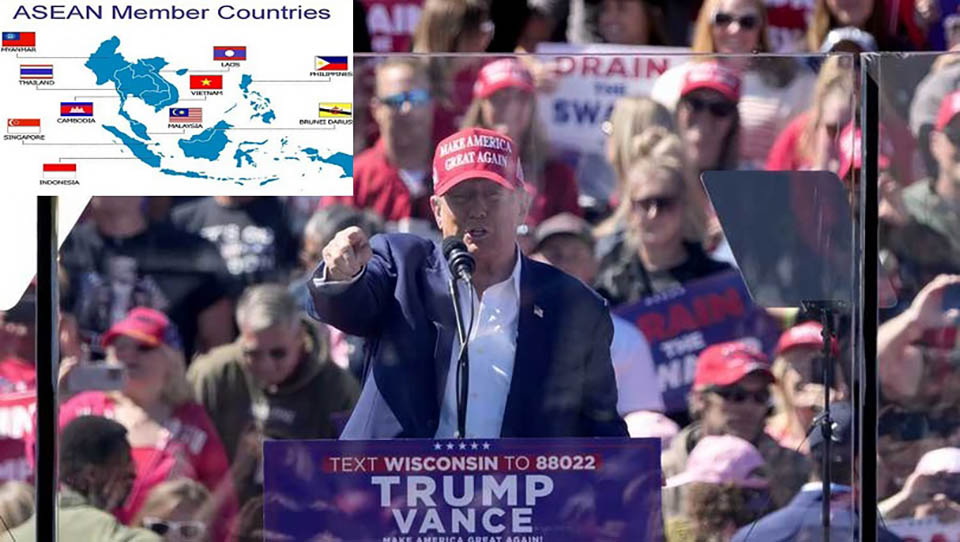
Donald Trump, the Republican candidate for the U.S. presidency, has issued a stark warning to any country that abandons the U.S. dollar. Speaking at a rally in Wisconsin on Saturday, September 7, Trump declared that countries moving away from the dollar for trade will face unprecedented tariffs. He emphasized the importance of the dollar as the world’s reserve currency and promised to protect its status amid growing global moves to seek alternatives.
“If you abandon the dollar, you won’t be able to do business with the U.S., because we’ll impose a 100% tariff on your goods,” Trump declared.
The trend toward using local currencies instead of the U.S. dollar has gained traction, particularly after Western sanctions against Russia in response to its full-scale invasion of Ukraine in February 2022. Russia, cut off from Western financial systems, began exploring alternative payment methods, a path followed by some of its trading partners.
Last week, Russian President Vladimir Putin confirmed that Russia did not intentionally reduce its dependence on the dollar but was forced to do so due to unprecedented sanctions, including the severing of its central bank from dollar transactions and the freezing of its foreign reserves. Putin noted that Russia and its BRICS allies now use local currencies for 65% of their trade transactions.
Meanwhile, members of the Association of Southeast Asian Nations (ASEAN) are also discussing a shift to using local currencies for trade, moving away from reliance on the U.S. dollar, euro, yen, and pound. The ASEAN economies, including Brunei, Cambodia, Indonesia, Laos, Malaysia, Myanmar, the Philippines, Singapore, Thailand, and Vietnam, collectively represent a GDP of approximately $4 trillion.
Trump’s threat came despite his earlier announcement that Washington would significantly reduce sanctions if he is elected in November. Speaking at the Economic Club of New York, Trump admitted that U.S. sanctions have been damaging to the dollar, suggesting a need for a different approach to avoid further harm to the currency.








